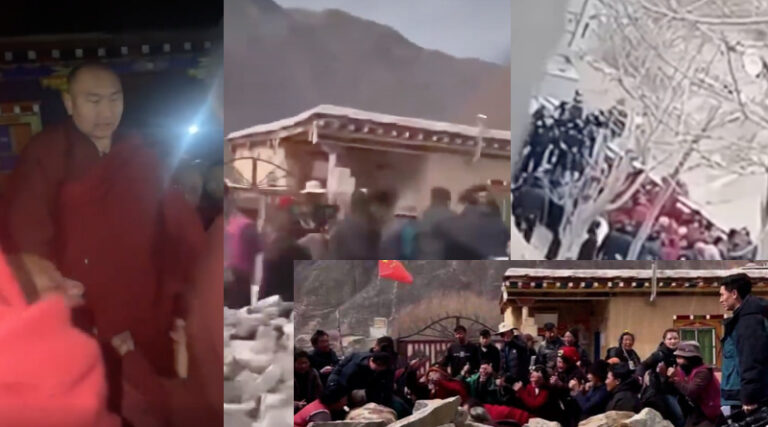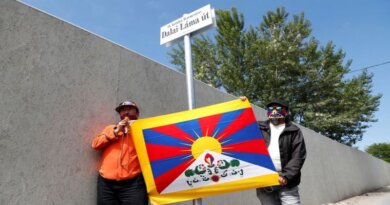HRW Urges China: Release Detained Tibetans Amid Brutal Crackdown

DHARAMSALA, 29 Feb: The Human Rights Watch (HRW), a global rights watchdog, declared on Wednesday that Chinese authorities are particularly “brutal” in their response to protests by “Tibetans and other ethnic groups”, calling for the immediate release of hundreds of Tibetan monks and villagers who were detained for peacefully protesting the construction of a hydroelectric dam in Derge in Kham, Eastern Tibet, on the Dri Chu River.
“The Chinese authorities should immediately release hundreds of Tibetan monks and villagers who were detained while peacefully protesting the construction of a hydroelectric dam,” stated the HRW. Maya Wang, acting China director at Human Rights Watch, added, “The Chinese authorities have long been hostile to public protests, but their response is especially brutal when the protests are by Tibetans and other ethnic groups.”
She further called for global pressure against China to release the detained Tibetans.
“Other governments should press Beijing to free these protesters, who have been wrongfully detained for exercising their basic rights.”
Uzra Zeya, the US Special Coordinator for Tibetan Issues, expressed deep concern on Sunday over reports of mass arrests of Tibetans protesting a dam project threatening displacement and monastery destruction. She urged China to respect human rights and freedom of expression, and to involve Tibetans in policy decisions, highlighting the cultural significance of the affected monasteries.
A large-scale peaceful protest by Tibetans began on February 14 in response to Chinese authorities’ announcement of relocating monasteries and households for the Kamtok (Chinese: Gangtuo) hydropower station construction. This project threatens the submergence of significant monasteries, including Wontoe(Chinese: Wangbuding) ) and Yena, with valuable cultural heritage. Over 1000 Tibetans, including monks, were arrested by Chinese authorities on February 23, and distressing videos show their plea against the dam project and relocation. Tibetans in exile and supporters have since initiated efforts to amplify the voices of Tibetans in Derge who face forced displacement from their ancestral land and other forms of repression from Chinese authorities, joining the chorus calling for the Chinese authorities to scrap the hydro project.
The Dri Chu, known as Jinsha or the upper Yangtze River in Chinese, is the most heavily dammed river system in Tibet under Chinese rule. The Kamtok Dam is reported to be the sixth in a proposed series of 13 dams on the Dri Chu.





